This page was written, edited, reviewed & approved by Emil J. Fleysher following our comprehensive editorial guidelines. Emil J. Fleysher, the Founding Partner, has 15+ years of legal experience as a bankruptcy attorney. Our last modified date shows when this page was last reviewed.
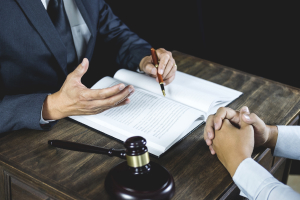
Are you struggling to keep up with your debts and wondering if filing for bankruptcy may be a better solution? Bankruptcy can offer a fresh start and relief from overwhelming debt. In most cases, the negative effects pale in comparison to the benefits. However, depending on your circumstances, you may be required to make some sacrifices to obtain your bankruptcy discharge of debt.
Our experienced bankruptcy attorneys understand the complexities of the bankruptcy process. We can help you understand your options so you can make an informed decision about whether bankruptcy is the right option for you.
In this blog post, we'll explore the pros and cons of filing for bankruptcy and provide insight into how a trustworthy attorney can help you navigate bankruptcy. Whether you're considering Chapter 7, Chapter 13, or another type of bankruptcy, we're here to help you achieve financial freedom and get your life back on track.
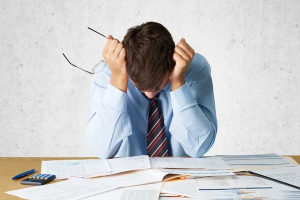
Bankruptcy is a significant event that can lead to many life-altering changes. It's not something to be taken lightly, and you should consider all the factors before deciding. Before you file your case, it’s important that you know and understand what you’re getting into and what’s involved in the bankruptcy rules and process.
Bankruptcy is a legal procedure that relieves individuals and businesses struggling with overwhelming debt. There are various types of bankruptcy, each with specific requirements and benefits. In this article, we'll explore the three most common types of bankruptcy: Chapter 7, Chapter 13, and Chapter 11.
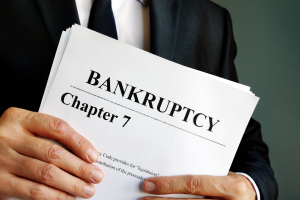
Chapter 7 bankruptcy, also known as the liquidation or straight bankruptcy. It is a procedure that allows you to request a court to discharge the majority of your debts so that you can start over. A judge will evaluate your case and decide whether to grant your request.
If granted, the court imposes an "automatic temporary stay." This prevents creditors from attempting to collect payments or taking actions such as wage garnishment, repossession, or foreclosure during the pendency of the bankruptcy case.
Chapter 7 bankruptcy provides immediate relief to individuals with substantial debt but also has some disadvantages.
Filing for bankruptcy protection has a long-lasting negative impact on your credit score. And you may lose non-exempt assets that are sold or "liquidated" to repay your creditors. But, the majority of assets are exempt and not subject to liquidation.
Typically, the liquidation procedure involves three steps:
Remember that your student loan debt, tax, and other secured debts are not "dischargeable," You will be required to repay them unless you can prove exceptional circumstances. But most consumer debt, such as medical bills, personal loans, and credit card debt, is dischargeable.
Chapter 13 is a reorganization bankruptcy. It allows individuals to restructure their debt. By filing Chapter 13 bankruptcy:
Under Chapter 13 bankruptcy, you likely will get to keep your property, such as your home. But, you must repay creditors in an amount equal to the value of your property not covered by the bankruptcy exemption.
You make all payments to the trustee, who will then pay the creditors. This means you will have no direct communication with creditors after you've been granted Chapter 13 protection.
Chapter 13 Payment Plan Debts
Chapter 13 bankruptcy plans reorganize debts into several categories. The following is Chapter 13 payment plan categories:
This includes non-exempt property you cannot afford to keep but is not protected by exemptions under the law.
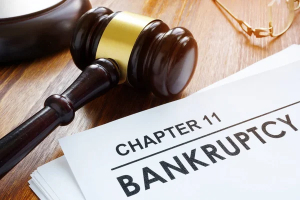
Chapter 11 permits your small business to renegotiate the terms of its debt payments with some or all of its creditors and to repay debts on a court-approved repayment schedule, despite the objections of some creditors. In the interim, so long as you act in good faith, you can continue to exercise control over your business.
If your business completes the repayment plan, its outstanding obligations will be dismissed, and it can continue operating. Chapter 7 will damage your company's credit score, but debtor-in-possession loans are usually available to help support the reorganization. We can clarify how a Chapter 11 plan works and help determine if you can handle one.
Filing for bankruptcy can be difficult, but it offers several potential benefits. Here are some of the pros of filing bankruptcy:
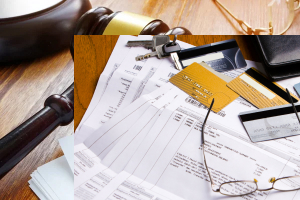
One of the most significant benefits of filing for bankruptcy is that it can relieve overwhelming debt. Depending on the type of bankruptcy, it may be possible to discharge most, if not all, of your unsecured debts, such as credit card debt or medical bills. This can help you get a fresh start and reduce financial stress.
Filing for bankruptcy can also protect from creditor harassment. Once you file for bankruptcy, creditors must stop contacting you to collect debts. This can provide some relief from the stress and anxiety that often comes with being in debt.
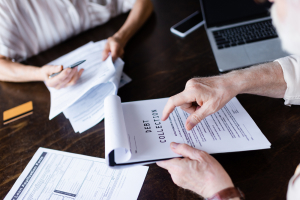
When you declare bankruptcy, an automatic stay goes into effect. This means that creditors are immediately prevented from taking any further action to collect debts, including foreclosing on your home or repossessing your car. This can provide some breathing room and allow you to explore your options for resolving your debts.
Filing for bankruptcy can provide a fresh start by allowing you to wipe out most, if not all, of your unsecured debts. This can provide relief and help you move forward with your finances.
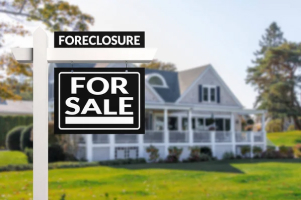
If you are behind on mortgage or car payments, declaring bankruptcy can allow you to catch up on missed payments and avoid foreclosure or repossession. This can help you keep your home or car and provide stability during difficult times.
In certain situations, filing for bankruptcy can allow for negotiating more favorable payment terms with creditors. In Chapter 13, bankruptcy, for example, you can devise a plan to repay your debts over time, potentially at a reduced interest rate.
Remember that the specific benefits of filing for bankruptcy will depend on your unique financial situation and the type of bankruptcy you choose to file. It's important to weigh the pros and cons carefully and consult a bankruptcy attorney or financial advisor before deciding.
While filing for bankruptcy can offer some benefits, it's also essential to consider the potential drawbacks. Here are some of the drawbacks of filing for bankruptcy:
One of the most significant drawbacks of filing for bankruptcy is its negative impact on your credit score. A bankruptcy filing can remain on your credit report as a public record for up to 10 years.
However, most filers are able to improve their credit profile and attain a credit score of 680 - 700 within 12 months from their date of bankruptcy discharge. This is accomplished by ensuring that you have at least 2-3 accounts reporting current every month following the bankruptcy. These current payments can include mortgage payments, car payments, or even secured credit card payments opened up after the bankruptcy filing.
Once your credit score is restored to these heights, you should qualify for most market rate auto loans, credit cards, etc. You can even qualify for a mortgage after 3 years if you’re applying for certain FHA or VA loans or 4 years under Fannie Mae and Freddie Mac guidelines.
Bankruptcy filings are a matter of public record, meaning anyone can access the information. This can be a concern for some people who value their privacy. However, obtaining this information can be difficult since you must generally access bankruptcy filing information via the federal government’s PACER website, which requires an account to access the information.
Depending on the form of bankruptcy, you may be asked to liquidate a portion of your non-exempt assets to repay your debts. While your homestead or primary residence is exempt in Florida, this can include assets such as non-homestead real estate, equity in your car above $1,000, or money in the bank in excess of $1,000.
Knowing how to apply exemptions is an important and complicated aspect of preparing your bankruptcy filing and should only be handled by an experienced bankruptcy attorney.
Bankruptcy filing can be a complicated and expensive process. It typically involves significant legal fees, bankruptcy court costs, and other expenses. Additionally, navigating the bankruptcy process can be complicated, especially if you are unfamiliar with the legal system.
It's essential to consider the potential cons of filing for bankruptcy. While bankruptcy can relieve overwhelming debt, there are better choices for everyone. It's necessary to consult with a bankruptcy attorney to understand your options and make an informed decision.
Filing for bankruptcy is a crucial decision that can significantly impact your finances and credit score. Before filing for bankruptcy, carefully considering your options and the potential consequences is essential. Here are some factors to consider before filing for bankruptcy:
1. Your Overall Financial Situation
Before filing for bankruptcy, you must look at your financial situation comprehensively. This includes looking at your income, expenses, debts, and assets. Determining whether bankruptcy is the best solution for your financial situation is essential.
2. Type of Bankruptcy
There are various bankruptcy categories, including Chapter 7, Chapter 13, and Chapter 11. Each variety has distinct eligibility requirements and consequences. It is crucial to familiarize the distinction between the different types of bankruptcy and choose the one that best fits your circumstances.
3. Alternative Options
Before filing for bankruptcy, it's essential to consider alternative options for managing your debt. This can include negotiating with creditors, consolidating debts, or working with a credit counseling agency. It's essential to explore all of your options before deciding to file for bankruptcy.
4. Potential Consequences
Filing for bankruptcy can have significant consequences, including a negative impact on your credit score and the potential loss of assets. It's essential to fully understand the possible effects before making a decision.
5. Legal Assistance
Navigating the bankruptcy process can be complex, and it's vital to have the assistance of a qualified bankruptcy attorney. A bankruptcy attorney can help you understand the process, determine which type of bankruptcy is right for you, and guide you through the process.
Before filing for bankruptcy, it's essential to consider all these factors and consult a qualified bankruptcy attorney. By taking a comprehensive look at your financial situation and exploring your options, you can decide whether bankruptcy is the right choice.
A team of experienced attorneys specializing in bankruptcy law understands the complexities of the bankruptcy process and can help you decide whether bankruptcy is the best option.

Bankruptcy can feel like a difficult, impossible choice. The unknowns of what comes next—the embarrassment, the loss of status and security—make it hard to consider bankruptcy a real solution.
But it is a real solution, and Fleysher Law can help you see that. To schedule an appointment or take the following steps to eliminate your creditors' calls and breathing room in your budget, contact us today at (888) 886-0020.

Emil specializes in consumer bankruptcy, debt settlement, and mortgage modification, offering a holistic approach to solving mortgage and debt problems. Emil listens to clients, understands their circumstances and goals, and helps them make the right choices by presenting all options and contingencies.
He is dedicated to helping South Floridians regain their financial freedom from overwhelming debt caused by high interest credit cards, bad mortgage loans, and uninsured medical expenses.

"*" indicates required fields